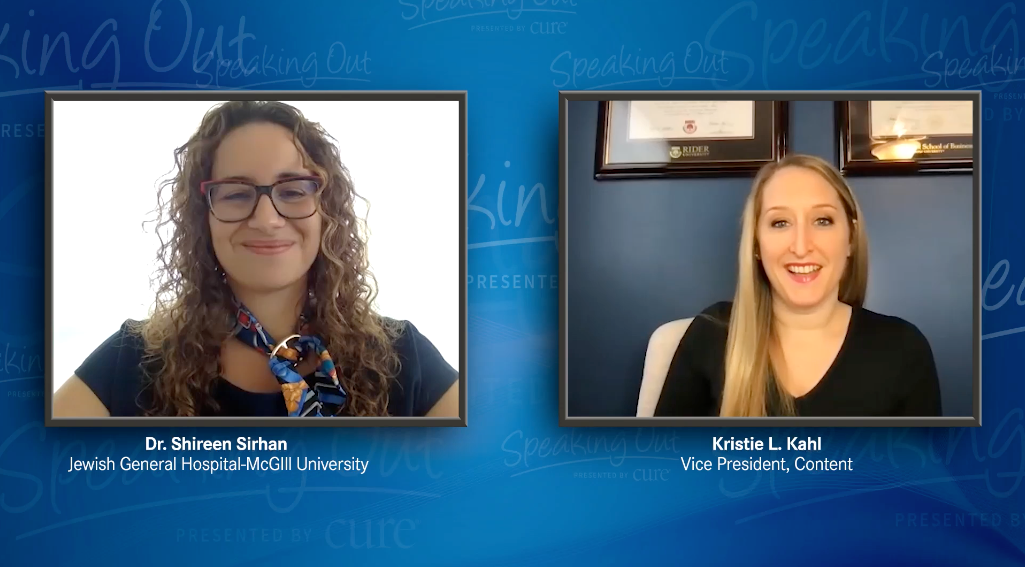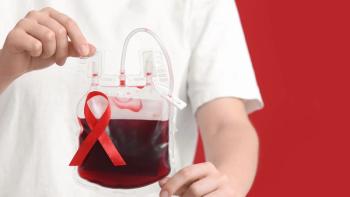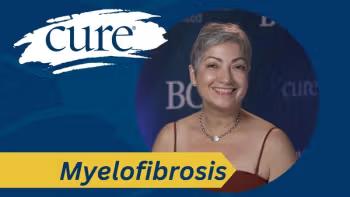
Improving Overall Care of MPNs with Support Groups and Advocacy Research

On behalf of the Canadian MPN Research Foundation, CURE spoke with Dr. Pierre Villeneuve, from the University of Ottawa, about MPN resources and support groups available to patients and loved ones.
Kristie L. Kahl: Why is it important for patients and their loved ones to seek support after an MPN diagnosis?
Dr. Pierre Villeneuve:Well, I think it is important to recognize for patients be told that an MPN diagnosis can take a significant toll on them both psychologically, it can sometimes be very overwhelming. And I think that not only psychologically, that's very stressful, but also so it can lead to emotional trauma, but also has depending on the stage of the disease, some people will have very mild symptoms, some people will be much more symptomatic, but it can affect other aspect of their life. So such as their work-life balance, it can affect their towns for future kids and work ambitions, for instance.
Kristie L. Kahl: Can you give examples of the type of support that patients and their loved ones can seek?
Dr. Pierre Villeneuve:I think, if you appreciate all the different aspects of their life, and then you can address the different needs of support. So we talk about the emotional challenge that goes along with that, I think it's true. And I think depending on the stage of the disease, from the time of diagnosis, people will evolve. But some people will benefit, sometimes not only from support from their peers, support from their family, but also sometimes professional support. And typically, lots of the cancer centers will have professionals that are really dedicated to that. And I think that's key to ask for that help when needed to. I've seen patients really benefiting, that reduces the burden on the shoulders of caregivers, and also patients, they really feel they've got somebody who can give them the tools to deal with all the financial stress and logistical issues.
Sometimes social workers can be very, very helpful. So to deal with disability, worker compensation issues, for instance, to help get additional financial help social workers are really trained to help and find the right resources. So I think that's important. The cancer care societies are helpful to figure out, making sure that you're managed by or identified the right place for you. So if you have an MPN issue, and that is more complex, maybe you want to be in a place that has expertise or dedicated expertise in MPN to ensure that you figure out where your treatment, where you are in the treatment, and what are the treatment options, and also what type of clinical trials, if at all, may be relevant to you. So these are all things that you can get through information through your cancer societies.
Kristie L. Kahl: What's the best way for patients and their loved ones to start to seek that help?
Dr. Pierre Villeneuve:Well, I think that's where having an open dialogue with the healthcare team, so the nurses and physicians is very, very important, I think one thing is important to appreciate. And that's something you learned in med school. And sometimes we don't do as well as we should, but it's really to think of the patient as not just a disease and not say, I'm just going to treat your myelofibrosis I'm actually going to manage your care. So that means dealing with the fact that you've got anxiety that you've got financial issues, that you need additional help at home. So, to have a more holistic approach. So when you meet, I think it is, in part, when you meet with the clinicians, that is part of the responsibility of the physician and the nurse to ask about other things not just purely the medical aspect of your care, but to talk about how are things at home, as work as a financial aspect, as your exercise and diet and so on.
So it is important for physicians to do that, the nurses, but also for patients to say, Well, you know, that's actually important for me, you know, I'm not eating well, or, I have lots of stress at home, and is there anything? And can you have any condition can make and, and I think, you know, if you don't talk about it, then you can't address it. And Failure to do so will lead to suboptimal care. And at the end of the day, the patient will suffer. And that's very unfortunate, because these are chronic disease. Right? So it's very important to have a very long term perspective and and think of the quality of life and in really a broader sense than just focusing on the disease.
Kristie L. Kahl: How can advocacy groups like the Canadian MPN Research Foundation also help?
Dr. Pierre Villeneuve:So they're extremely helpful with a number of things in a number of ways. One is that they've got resources in terms of information that are true, are the different treating MPN physicians or groups. They will also have information typically about different trials, they may have information about what type of drugs may or may not be available in whatever jurisdiction so in the states or different cities, or in Canada different provinces. They also will be able to begin to hook you up with patients with MPN support group. And I think I certainly want to emphasize how helpful it can be for some patients at least, to have that opportunity. The other thing is that support research groups have an ability to identify needs that patient may have and say, Okay, well, you know, what this aspect is, you know, quality of life is not studied enough. And maybe we think it's important and maybe we want some money devoted for research. And so there were more and more I think in medicine, we recognize that patients, it is important to have research that is devised to answer the patient's needs not just focusing on life, your gain or some symptoms, but we need to have again, a broader perspective and say, Okay, we're treating you what is it that you think how, how we could improve your care and patient group can steer research questions.




